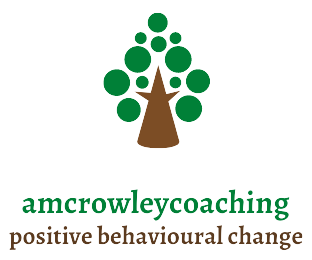A brilliant and amazingly effective skill of assertive people, is the ability to get to yes. It is a powerful, collaborative and positive approach to life. Assertive people are superb at getting to yes, they are influential and organised, they get things done, the right way for them and for others. The outcomes are a win-win for both parties. They do not give up, do not give in and they definitely do not compromise. I am not a fan of compromise, it is a silent way (often resented) to give in or give up, with weaker and less impactful results for all involved.
Getting to yes frees you to get what you need while meeting the needs of the other person: perfect for assertiveness and for leading the life you want to lead, the way you want to. Watch out though, it requires high levels of trust and openness; no fear, no hidden agenda, so it may not be always possible or it will be difficult to adhere to, in certain organisational cultures or with people who value a more aggressive or indeed the opposite, a passive style. Here’s a typical situation at work:
Your boss asks you to be on another international committee, and you don’t really have the time: your other half is already giving you lots of grief on being late home every night, you never go for the run you promised yourself you would do at least 3 times a week since January and you are rarely around to help with the children’s bedtime routine. You have a few choices:
You can say yes (again) and resent it greatly, attend meetings but not attentively, never follow-up on actions assigned to you or do so late, moan and groan to your colleagues and generally feel very hard done by
Or
You can say no straight out as you are tired of being the one person on the team being asked to take on extra assignments. The feel-good factor in saying no so firmly and quickly, wears off when you find that your colleague that took on the committee is now in line for a promotion (you wanted) as a result of building a relationship with someone on the committee who was impressed with them
Or
You can get to yes by approaching the situation as an opportunity for collaboration: does the new committee offer career development opportunities that fit with your long-term plans? If yes, perhaps you can give up another assignment in exchange, or maybe you can negotiate getting help so that you reduce your workload and allow more time for developmental opportunities. Either way it could be an opportunity to have a discussion about your job, your goals and plans.
In getting to yes on any type of request, ask yourself the following questions:
- Do I have time to do it? How long will it take? What resources does it require?
- Am I the right person to fulfil this request or is someone else a better fit?
- Where does this request fit with my job, my goals and my long-term plans? How urgent or important is it?
- Am I saying no because I do not want to do it: it is difficult, awkward, un-wielding and I just do not want to be involved?
- To what must I say no in order to say yes to this request, is it worth it, for me, my work, my career, the team, the organisation? Would it be better if I say yes to something else, to myself or someone else?
- How else could this request be fulfilled? Is there a more creative way to do it?
In getting to yes, it is important at all times to remain professional, and that is why saying no straight out is not an option especially if the reason is no. 4 above. Getting to yes will often mean saying no, while saying yes to the person: it is a collaborative effort to help the person making the request to:
- Find out precisely what they really need (note the word need, not want – as both things are not the same) by:
- Uncovering areas of flexibility
- Agreeing on priorities
- Fully explore other ways in which the needs can be met by:
- Finding a different frame of reference or approach
- Looking for time and resource alternatives
- Examine how they can be supported to have the needs met by:
- Defining and placing the needs within the larger goal
- Looking for common interests and needs
High levels of trust, openness and good communication are essential in getting to yes because when people trust each other, they’re more likely to communicate their needs accurately. When they share information about what they want, what they need, and why they need it, this can lead others to want to collaborate and find a joint solution. And when you work in an environment of respect and trust with people who are open and approachable, it’s possible to get to yes without compromising anyone’s needs in the process. So no giving up, no giving in, absolutely no compromising, just getting to yes (and no more, or a lot less, giving out!).
Anne Marie
Anne Marie Crowley BA MSc Dip.Coaching, based in Cork Ireland, is a free-lance Coach and Trainer in the field of behavioural change for individuals and business.
Anne Marie is the founder of Crowley Personal and Business Change.


